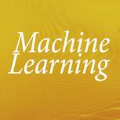Machine learning is a popular approach to signatureless malware detection because it can generalize to never-before-seen malware families and polymorphic strains. This has resulted in its practical use for either primary detection engines or for supplementary heuristic detection by anti-malware vendors. Recent work in adversarial machine learning has shown that deep learning models are susceptible to gradient-based attacks, whereas non-differentiable models that report a score can be attacked by genetic algorithms that aim to systematically reduce the score. We propose a more general framework based on reinforcement learning (RL) for attacking static portable executable (PE) anti-malware engines. The general framework does not require a differentiable model nor does it require the engine to produce a score. Instead, an RL agent is equipped with a set of functionality-preserving operations that it may perform on the PE file. Through a series of games played against the anti-malware engine, it learns which sequences of operations are likely to result in evading the detector for any given malware sample. This enables completely black-box attacks against static PE anti-malware, and produces functional evasive malware samples as a direct result. We show in experiments that our method can attack a gradient-boosted machine learning model with evasion rates that are substantial and appear to be strongly dependent on the dataset. We demonstrate that attacks against this model appear to also evade components of publicly hosted antivirus engines. Adversarial training results are also presented: by retraining the model on evasive ransomware samples, a subsequent attack is 33% less effective. However, there are overfitting dangers when adversarial training, which we note. We release code to allow researchers to reproduce and improve this approach.
翻译:机器学习是一种流行的方法,可以用来检测没有标记的恶意软件,因为它可以概括地说,从不见的恶意软件家庭和多元变异菌菌菌株。这已经导致它实际用于初级检测引擎或反恶意软件供应商的补充休眠检测。对抗性机器学习的最近工作表明,深层次学习模式很容易受到梯度攻击,而报告得分的不区分模型则会受到基因算法的攻击,这些算法的目的是系统地减少得分。我们提出了一个基于强化学习的更宽泛框架,用于袭击静态便携式软件和多变变变素发动机。总框架不需要不同的模型,也不需要发动机来产生分数。相反,一个RL代理器配备了一套功能性保留操作,它可能会受到梯度攻击,而通过一系列的游戏来报告得分,它能够系统地减少得分。我们所给的恶意软件样本的操作序列可能会导致检测器的规避。这样可以让对静态的PE-恶意软件执行机件发动机进行完全黑箱攻击,并且不需要发动机进行得分的模型。 一种功能性游戏代码可以显示我们直接的变速数据。




